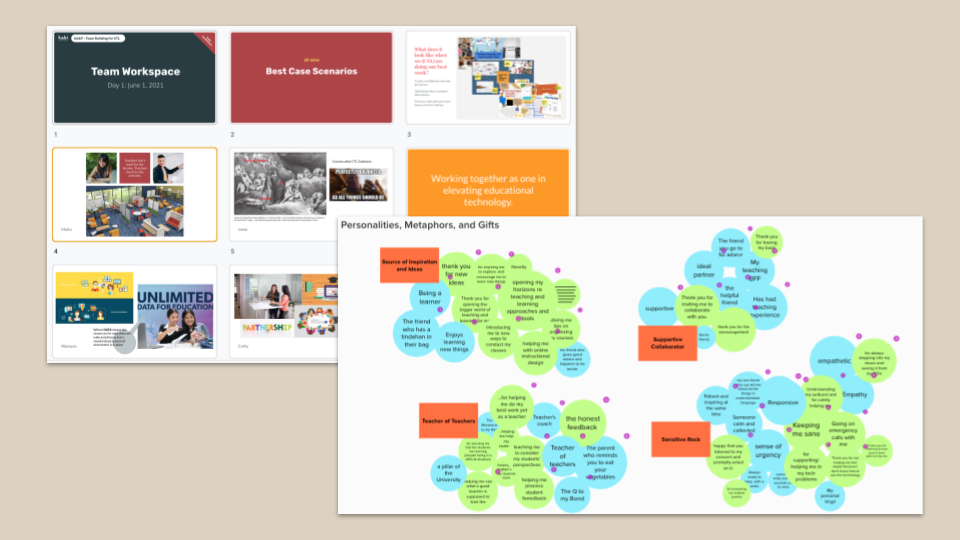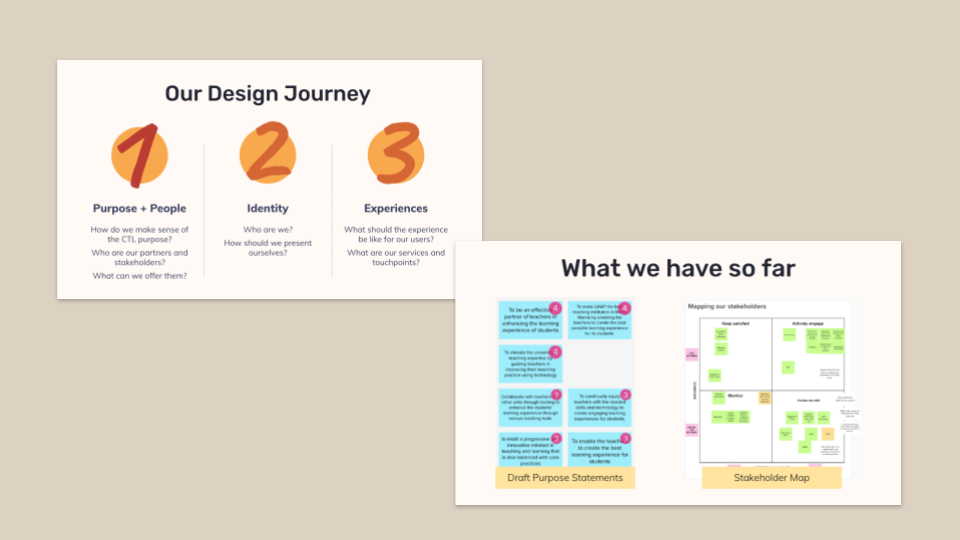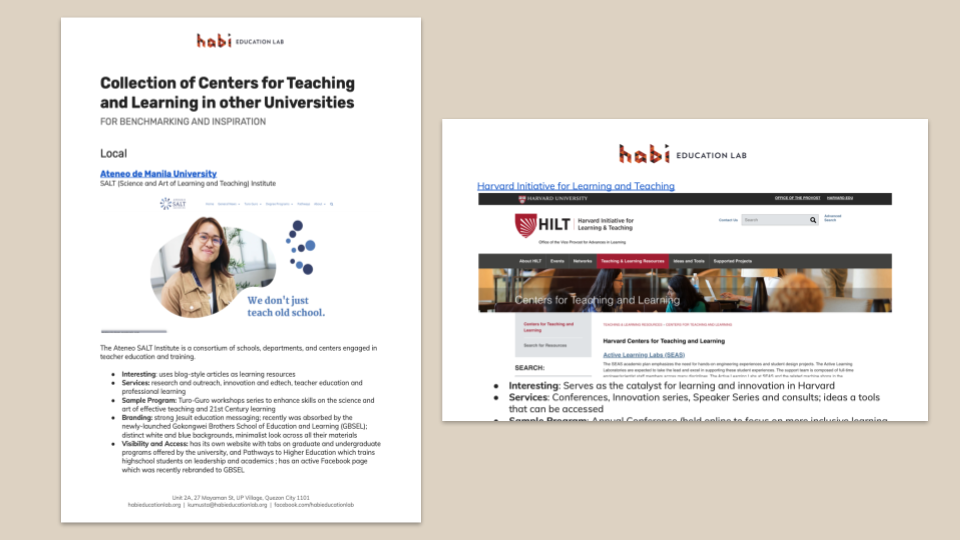With the sudden shift from face-to-face classes to remote teaching and learning in a fully online environment, the University of the Asia and the Pacific (UA&P) focused their strategic efforts in establishing basic teaching practices suitable to the new teaching and learning environment. This 3-part workshop with UA&P CTL’s team was facilitated with creative exercises to arrive at a shared alignment on CTL’s purpose.
Task
How might we build a solid identity through the foundations of a strong and healthy team culture?
Involving community members and stakeholders
The Center for Teaching and Learning team (CTL) of University of Asia and the Pacific (UAP) as well as faculty members were invited and present to participate in this 3-part workshop. Faculty members played active roles in the workshop and helped inform CTL on what the CTL is to them. Because of this, we were able to gain more perspective on the communities that CTL wanted to serve.
Arriving at shared alignment on purpose
A common challenge for almost all organizations is to make sure that the purpose statement is clear and that the concerned stakeholders have a shared understanding of their purpose. Habi started the workshop with the intention of framing what the purpose statement is and why CTL exists. This resulted in rich discussions, and a more aligned definition for the participants.
Co-creating knowledge
In the true spirit of one of our workshop norms, “show, don’t tell,” Habi created an inspiration document for CTL that could be accessed online. The Habi team researched different centers for teaching and learning and listed down the highlights of each. When this was shared with UAPs CTL team and faculty, they added their own notes, took some inspiration from them and shared their own knowledge on centers for teaching and learning.
Using creative exercises to draw out stories
One activity Habi did was to write a break-up letter to a brand that we love and read it out to the group. This allowed the participants to see the relationships they had with services and products. We used this as a metaphor to highlight the importance of knowing what CTL wants to be valued for, and possible reasons to want to break up with them.



